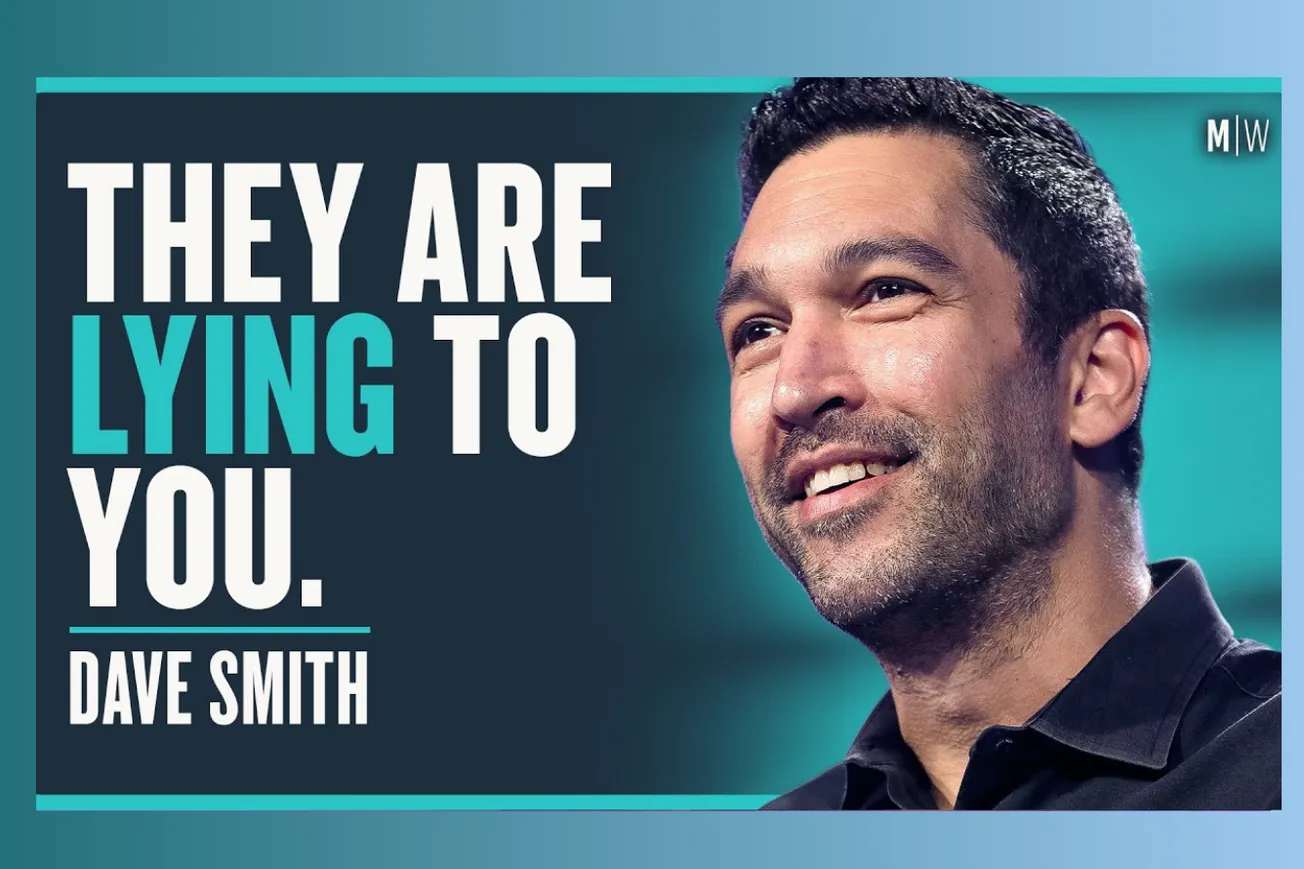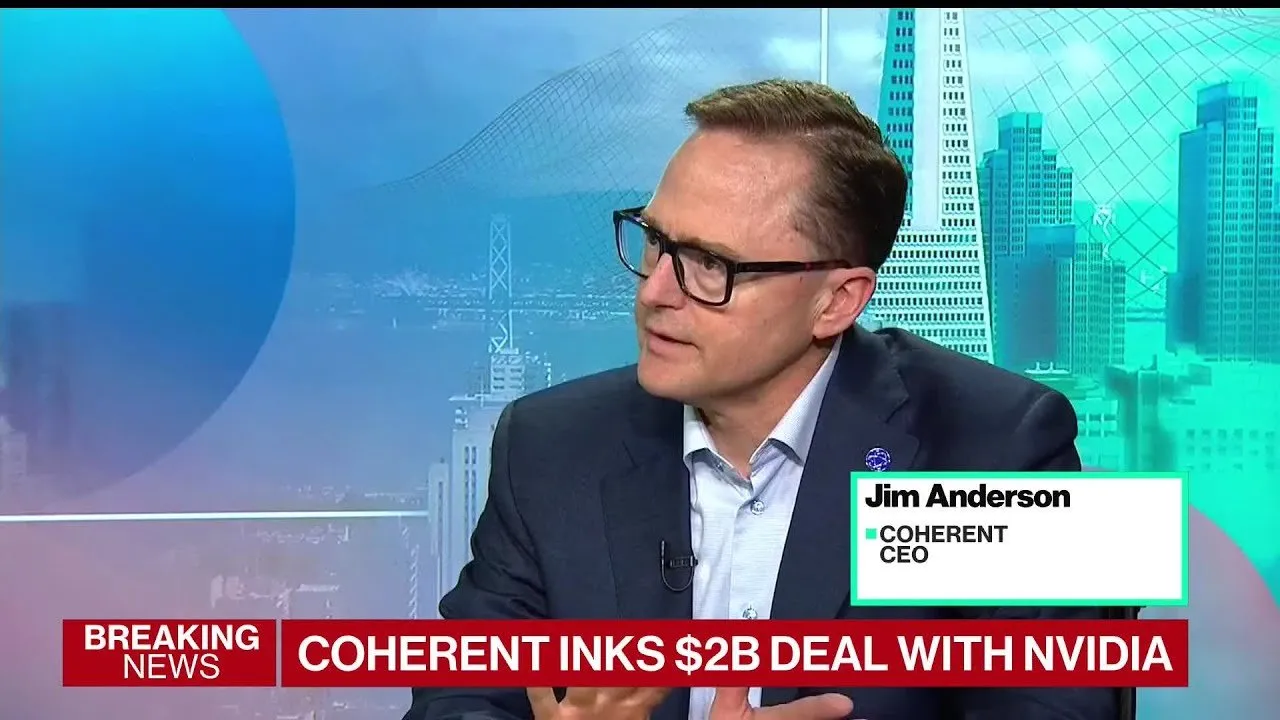Table of Contents
Comedian and political commentator Dave Smith explains how mainstream media transformed into state propaganda while independent creators built superior information ecosystems that render legacy outlets obsolete.
Key Takeaways
- Corporate media functions as state propaganda with no meaningful difference from government-controlled outlets
- Modern propaganda has become "profoundly stupid" and easily exposed by social media verification
- Independent media creators consistently deliver more intelligent analysis than billion-dollar news operations
- 69% of Americans have little to no trust in corporate media, representing complete institutional collapse
- Long-form conversations expose the intellectual bankruptcy of establishment political figures
- Social media fragmentation into echo chambers eliminates cross-pollination of ideas between political sides
- Censorship-dependent ideologies cannot survive in open marketplace of ideas on platforms like X
- The mainstream media gets major stories wrong consistently, always erring on the side of power
- Trump's second term faces the challenge of governing rather than campaigning against the establishment
- Libertarian principles offer solutions to government corruption through massive spending cuts
Timeline Overview
- 00:00-15:00 — Corporate media as state propaganda, propaganda quality decline, Tony Hinchcliffe controversy example, institutional admission of irrelevance
- 15:00-30:00 — Independent media superiority, Sam Harris criticism response, institutional resource advantages, masculinity parallel discussion
- 30:00-45:00 — Far-right/far-left rise due to establishment failure, Trump's drain the swamp message effectiveness, trust statistics
- 45:00-60:00 — Media learning inability, post-election analysis failures, long-form conversation advantages, establishment politician limitations
- 60:00-75:00 — Social media platform fragmentation, X exodus to Blue Sky, censorship dependency, echo chamber effects
- 75:90:00 — Historical political corruption examples, Federal Reserve system, relationship standards in discourse, debate willingness asymmetry
- 90:00-105:00 — Specific media bias examples, institutional stubbornness, audience disparity impacts, strategy effectiveness changes
- 105:00-120:00 — Intellectual curiosity importance, Joe Rogan relationship authenticity, libertarian party politics, government corruption solutions
Corporate Media as State Propaganda: The Mask Finally Slips
Dave Smith's most damning assessment cuts straight to the core: "I view the corporate media apparatus in not just the United States of America but in most Western countries as essentially state propaganda. They might as well be State media. There's essentially no difference."
This isn't hyperbolic criticism - it's a functional analysis of how legacy outlets operate. Their primary purpose involves "covering for powerful people and spinning the narrative that those powerful people wish for the plebs to believe." This dynamic has existed for decades, from lying America into Vietnam to manufacturing consent for various military interventions.
What changed isn't the propaganda function itself, but its quality and effectiveness. "What's striking to me about the last year is how profoundly stupid the propaganda has become and kind of their inability to adjust to the new facts on the ground," Smith explains.
The Tony Hinchcliffe controversy exemplifies this stupidity perfectly. When mainstream outlets reported on his comedy routine at Madison Square Garden, millions of people had already seen the actual footage on social media. "Everyone who's seen that is also seeing the actual thing like they can literally see that you're lying to me," Smith observes.
- Legacy media operates with billion-dollar budgets yet consistently gets out-performed by independent creators with minimal resources
- Corporate outlets cannot adapt to environments where audiences can immediately fact-check claims through direct source material
- The lies have become "so blatant" that even casual observers recognize the manipulation attempts
- CNN's daytime shows draw 200,000 viewers while viral social media clips reach millions, demonstrating the complete audience shift
- Modern propaganda fails because it assumes audiences cannot access primary sources or alternative perspectives
- Even corporate media has "finally had to admit that they're not the mainstream anymore" after years of denial
This represents institutional collapse rather than temporary setback - these outlets have lost their fundamental ability to control narrative through information gatekeeping.
The Intelligence Gap: Why Independent Media Dominates
Smith acknowledges Sam Harris's criticism about comedians like himself analyzing complex geopolitical situations, but turns the critique back on institutional failure: "If you're just being honest... shows like this and shows like Joe Rogan's show... there's just what's going on is just levels more intelligent and thoughtful and interesting than anything that's happening at CNN or ABC news."
This isn't subjective preference - it reflects measurable differences in analytical depth and intellectual curiosity. Smith cites his appreciation for "brilliant left wingers, brilliant right wingers... Libertarians different all types of different views if you're thoughtful and interesting." He specifically mentions Noam Chomsky as "must read stuff" despite disagreeing politically.
The corporate media landscape produces nothing comparable. "Tucker Carlson and Glenn Greenwald sitting down and having a discussion is just light years more intelligent and thoughtful than anything that you'll ever catch out of any of these corporate media outlets."
This superiority emerges from structural rather than personnel differences. Independent creators face market pressures for quality content while corporate outlets face pressures for political compliance and advertiser appeasement.
- Independent creators must produce genuinely engaging content to maintain audiences, while corporate outlets rely on legacy distribution advantages
- Long-form conversations allow for nuanced exploration of complex topics rather than soundbite-driven oversimplification
- Independent media attracts intellectually curious audiences seeking genuine understanding rather than confirmation bias reinforcement
- Corporate outlets employ journalists who prioritize career advancement over truth-seeking, creating systematic mediocrity
- The resource disadvantage forces independent creators to focus on ideas rather than production values, improving content quality
- Establishment outlets cannot risk honest analysis that might contradict powerful sponsors or government sources
The intelligence gap widens because independent media operates in genuine marketplace of ideas while corporate media functions as sophisticated marketing department for establishment interests.
The Establishment Failure Theory: Why Extremes Gain Traction
Smith provides crucial insight into contemporary political polarization through historical analysis: "Usually, always when far right or far left radical groups actually take over or get a strong foothold it's because the establishment has failed on every level."
This pattern explains current American political dynamics better than cultural or demographic theories. Young people embrace socialism because "they view that as the opposite of what we have right now." Right-wing populism grows not from coherent ideology but from Trump's "drain the swamp message" that resonates with voters who "know this whole thing is corrupt."
The establishment's comprehensive failure creates vacuum that extremes fill by default. "If the establishment is doing a great job... if we had peace and prosperity and... a healthy society there's no way you would see the far left and the far right gaining as much traction as they are today."
This analysis reveals why moderate solutions fail to gain traction - they're associated with the failed status quo that created current problems. Voters choose dramatic alternatives not because they necessarily support extreme ideologies, but because they reject everything connected to current institutional arrangements.
- Bernie Sanders and Trump represent opposite responses to the same establishment failure, explaining their similar anti-elite messaging
- Young voters embrace radical alternatives because moderate incrementalism has produced economic decline for their generation
- Political polarization reflects rejection of institutional authority rather than genuine ideological commitment to extreme positions
- The "drain the swamp" message succeeded because it acknowledged systematic corruption that establishment politicians couldn't admit
- Extreme movements gain power when institutions lose legitimacy through repeated failure and obvious corruption
- Historical precedent shows that radical movements fill power vacuums created by establishment incompetence and moral bankruptcy
Understanding this dynamic helps explain why calls for moderation and institutional respect fall on deaf ears among populations that have watched those institutions consistently fail.
The Trust Collapse: 69% of Americans Reject Corporate Media
Smith cites devastating statistics about institutional credibility: "69% of Americans have absolutely no or very little trust in the corporate media." This represents complete breakdown of the social contract between news outlets and their supposed audience.
The media industry's response to this collapse reveals their fundamental misunderstanding of the problem. Post-election analysis ranges from "the real loons who are like no it was sexism and racism" to those with "only one foot off the cliff" who think minor adjustments might restore credibility.
None address the core issue: "They just consistently lie through their teeth and we've gotten every single issue wrong, every single one of them on the side of power." The pattern holds across decades of major stories - "from the war in Iraq to the financial recession... Covid... Russia gate and all this stuff."
The institutional inability to acknowledge this pattern ensures continued decline. "None of them can admit that oh we were lying when we said this is a great economy actually we've totally gutted this economy and rigged it against any honest working class person."
- Trust collapse reached terminal velocity when social media enabled real-time fact-checking of corporate media claims
- Post-mortem analyses focus on messaging tactics rather than fundamental dishonesty, ensuring continued failure
- The perfect record of being wrong "on the side of the CIA" cannot be explained by coincidence or incompetence alone
- Economic gaslighting particularly damaged credibility as working people experienced inflation while media claimed prosperity
- Institutional preservation instincts prevent honest self-assessment that might restore some credibility
- The 31% who maintain trust likely represent either direct beneficiaries of current system or those without alternative information sources
This trust collapse cannot be reversed through cosmetic changes because it reflects accurate assessment of institutional performance over decades.
Long-Form Conversations as Truth Serum
Smith identifies a crucial development in political communication: "There's a new game in town now... if you want to be president of the United States you have to go and sit for an unedited three-hour-long in-depth conversation."
This format exposes the intellectual bankruptcy of establishment politicians like Kamala Harris, who "is not built to be able to speak openly and unguarded for three hours. Her whole thing is she's got to say talking points because otherwise you might find out that she has nothing."
The long-form requirement creates insurmountable problems for politicians who rely on censorship and narrative control. "If you're on the side of transing the kids or whatever you don't do well in a long form conversation. You rely on shutting down your opponent by calling them a bigot and then having censorship."
This represents fundamental shift in political communication that favors authentic thinking over rehearsed messaging. Politicians cannot survive three-hour conversations without genuine beliefs and intellectual curiosity.
- Unedited long-form conversations prevent political handlers from controlling messaging through selective editing and soundbite curation
- Three-hour formats require genuine engagement with complex topics rather than memorized talking points and deflection techniques
- The format favors politicians who actually think about policy rather than those who simply repeat consultant-approved messages
- Establishment politicians cannot risk extended exposure because it reveals their lack of substantive beliefs or independent thinking
- Independent media creators excel in this format because they regularly engage in genuine intellectual exploration rather than performance
- The precedent creates permanent disadvantage for future politicians who cannot engage authentically in unscripted conversations
This development may represent the most significant change in political communication since television, permanently altering the skills required for electoral success.
Social Media Fragmentation and Echo Chamber Amplification
The exodus of establishment figures from X to Blue Sky reveals their dependence on controlled environments. Smith observes: "After Elon Musk came in and bought Twitter and kind of was like no this isn't going to be a controlled environment you've seen that a lot of these people they rely on that they rely on the fact that their opposition is going to be censored."
This fragmentation accelerates ideological siloing beyond what algorithms already accomplish. When platforms separate entirely by political orientation, "the fragmenting and the fragmenting and this sort of siloing of different groups in different social medias... is going to make your own echo chamber and your own bias even worse."
The asymmetry proves telling: "I've never been and I don't know anybody anyone who was like a critic of the covid insanity who was saying that the people pushing lockdowns should be censored... all of them were saying let's have this debate."
One side consistently seeks open debate while the other requires censorship to maintain positions. This asymmetry suggests fundamental differences in argument quality rather than mere tactical preferences.
- Platform fragmentation eliminates accidental exposure to opposing viewpoints that might moderate extreme positions
- Algorithm-driven content curation already creates filter bubbles, but complete platform separation eliminates even minimal cross-pollination
- The side requiring censorship reveals weakness of underlying arguments through inability to compete in open discourse
- Echo chamber effects accelerate when platforms become ideologically homogeneous rather than just algorithmically biased
- The "parental clout gauge" - when stories reach parents on Facebook - may become the only remaining cross-platform information transfer
- Blue Sky migration represents retreat rather than strategic repositioning, suggesting acknowledgment of argumentative weakness
This trend toward platform balkanization may create permanent ideological separation that prevents democratic discourse and compromise.
The Pattern of Institutional Wrongness
Smith documents the corporate media's perfect record of error across major 21st century stories: "Isn't it convenient that they always get it wrong on the side of the CIA? It's so bizarre." This pattern spans "the war in Iraq to the financial recession... Covid... Russia gate" and countless other major narratives.
The consistency cannot be explained by incompetence or good-faith error. The outlets systematically support powerful interests regardless of factual accuracy or public interest. This creates what Smith calls institutional legitimacy crisis where "you've lost your right to exist" through moral bankruptcy.
The comparison to Soviet Union proves apt: institutions that consistently serve power while claiming to serve people eventually lose all credibility and moral authority. "The corporate media has lied the American people into war after war after war over the last 25 years... millions of innocent people have been slaughtered over these conflicts."
- Wesley Clark's documented testimony about 2001 plans to topple multiple Middle Eastern governments proves premeditation rather than reactive policy
- WMD claims, humanitarian intervention narratives, and democracy promotion rhetoric represent manufactured justifications for predetermined military actions
- The media's role in promoting these lies makes them complicit in "millions" of deaths and "trillions of dollars wasted"
- Financial crisis coverage prioritized bank bailouts over homeowner relief, again serving powerful interests over public welfare
- COVID coverage consistently supported pharmaceutical company profits and government power expansion over public health optimization
- The perfect record of being wrong "on the side of power" reveals systematic corruption rather than journalistic incompetence
This pattern explains why reform cannot restore legitimacy - the institutions have crossed moral lines that require complete replacement rather than incremental improvement.
The Challenge of Governing vs. Campaigning
Smith identifies a crucial transition facing Trump and the broader populist movement: moving from opposition criticism to actual governance. "It's very easy to criticize something and it's much harder to build something, and particularly if you're talking about draining the swamp... you're talking about taking on the most powerful entrenched interests in the history of the world."
The first Trump term demonstrated this challenge through immediate institutional resistance. "Donald Trump ran in 2016 on let's have détente with Russia... then you're framed as being a Russian spy. What are you going to do now?"
Effective governance requires different skills than effective campaigning. Opposition movements can unify around shared opposition to current arrangements, but governing requires specific policies that inevitably create new points of disagreement within coalitions.
- Implementing mass deportation faces "resistance on every level" including local law enforcement, activists, and media coverage of inevitable humanitarian problems
- The Russia détente example shows how institutional framing can make campaign promises politically impossible to implement
- Trump's first term failures stemmed from underestimating "how deep the swamp was or what they would come after him with"
- Every policy implementation creates new enemies and complications that pure opposition messaging cannot address
- Governing coalitions face pressure from competing interest groups that campaign coalitions can ignore by focusing on shared enemies
- The "drain the swamp" message succeeded as campaign rhetoric but provides limited guidance for specific governmental reforms
This transition from campaign opposition to governance implementation will test whether populist movements can deliver concrete improvements or merely provide therapeutic opposition to establishment power.
Libertarian Solutions to Systemic Corruption
Smith offers libertarian analysis of fundamental governmental corruption: "The essence of the corruption in Washington DC is that the government is so big. That's really why it is so corrupt, like definitionally that's why."
When government spends "7 trillion" annually as "the biggest most powerful organization in the history of the world," it inevitably becomes corrupted by the wealth it controls. "They get their money through the threat of force... they say you pay us or we will throw you in jail."
This creates systematic wealth extraction where government "extracting wealth from the American people and then handing them out to their political cronies." The evidence appears in geographic concentration: "there's more millionaires in the suburbs of Washington DC than there is anywhere else in the world."
The solution requires "drastic cuts in government spending" rather than personnel changes or procedural reforms. Corruption flows from size and power rather than individual moral failings.
- Government spending approaching $7 trillion annually creates irresistible incentives for corruption regardless of personnel quality
- Money creation through Federal Reserve system represents "the most blatant scam in the world" where private banks profit from public monetary policy
- Geographic wealth concentration around DC proves that government spending creates artificial prosperity for those connected to power
- The "Doge stuff" with Elon Musk and Vivek Ramaswamy represents first serious attempt to address structural rather than cosmetic problems
- Reducing government size eliminates opportunities for corruption more effectively than ethics rules or oversight mechanisms
- Libertarian principles offer systematic solutions to problems that conventional political approaches cannot address
This analysis suggests that meaningful reform requires philosophical rather than tactical changes in how Americans think about government's proper role and size.
Conclusion
Dave Smith's analysis reveals how corporate media's transformation into state propaganda created opportunities for independent creators to build superior information ecosystems. The 69% trust collapse in legacy outlets reflects accurate assessment of institutional performance rather than misguided populist sentiment. These outlets consistently err on the side of power across every major story, from wars to economic policy to public health, demonstrating systematic corruption rather than journalistic incompetence. Meanwhile, long-form conversations expose the intellectual bankruptcy of establishment politicians who cannot survive unedited three-hour discussions without talking points and handler protection.
The upcoming Trump term will test whether populist movements can govern effectively or merely provide therapeutic opposition to elite power, while social media fragmentation into ideological echo chambers threatens to eliminate the cross-pollination necessary for democratic discourse.
Practical Implications
- Seek primary sources and long-form content rather than relying on corporate media summaries and soundbite coverage
- Support independent creators and platforms that prioritize open discourse over narrative control and ideological conformity
- Recognize that institutional credibility collapse reflects accurate assessment of performance rather than unfair public sentiment
- Understand that political polarization often stems from establishment failure rather than genuine ideological extremism among populations
- Expect continued media industry consolidation and decline as audiences permanently migrate to independent information sources
- Prepare for social media fragmentation to increase ideological isolation unless conscious effort is made to engage across platforms
- Evaluate politicians based on their ability to handle unscripted long-form conversations rather than rehearsed debate performances
- Support systematic government reduction rather than personnel changes as solution to structural corruption problems
- Develop media literacy skills that can identify propaganda techniques regardless of political orientation or source credibility
- Build local information networks and relationships that provide alternatives to centralized media manipulation and control





